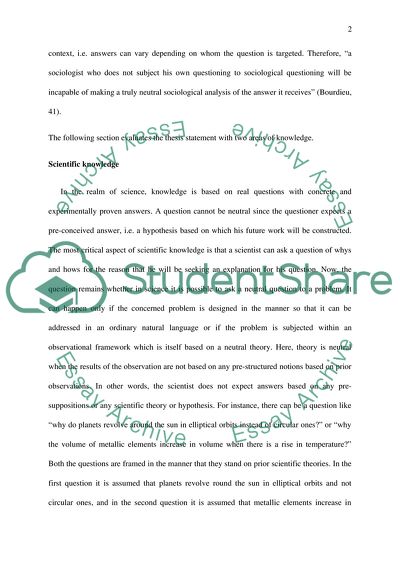Cite this document
(“There is no such thing as a neutral question. Evaluate this statement Essay - 3”, n.d.)
There is no such thing as a neutral question. Evaluate this statement Essay - 3. Retrieved from https://studentshare.org/miscellaneous/1676185-there-is-no-such-thing-as-a-neutral-question-evaluate-this-statement-with-reference-to-two-areas-of-knowledge
There is no such thing as a neutral question. Evaluate this statement Essay - 3. Retrieved from https://studentshare.org/miscellaneous/1676185-there-is-no-such-thing-as-a-neutral-question-evaluate-this-statement-with-reference-to-two-areas-of-knowledge
(There Is No Such Thing As a Neutral Question. Evaluate This Statement Essay - 3)
There Is No Such Thing As a Neutral Question. Evaluate This Statement Essay - 3. https://studentshare.org/miscellaneous/1676185-there-is-no-such-thing-as-a-neutral-question-evaluate-this-statement-with-reference-to-two-areas-of-knowledge.
There Is No Such Thing As a Neutral Question. Evaluate This Statement Essay - 3. https://studentshare.org/miscellaneous/1676185-there-is-no-such-thing-as-a-neutral-question-evaluate-this-statement-with-reference-to-two-areas-of-knowledge.
“There Is No Such Thing As a Neutral Question. Evaluate This Statement Essay - 3”, n.d. https://studentshare.org/miscellaneous/1676185-there-is-no-such-thing-as-a-neutral-question-evaluate-this-statement-with-reference-to-two-areas-of-knowledge.


